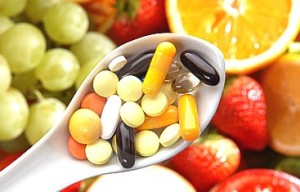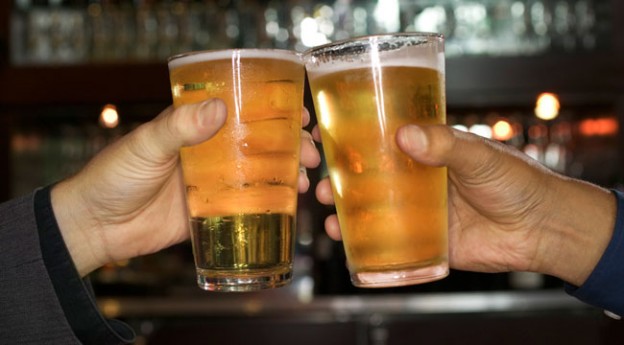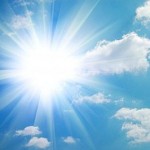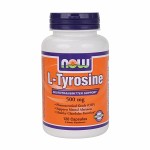By Anthoney J. Andersen – Steroidal.com
If you’re a bodybuilder or just an exercise enthusiast, then you’ve probably wondered whether or not consuming alcohol destroys your body’s ability to gain muscle mass.
Even though alcohol consumption can be damaging to the body – especially the liver – it can be consumed in moderation without causing serious harm to your body’s overall health.
THE SCOOP
There has been speculation on whether alcohol calories count or not.
This debate has been incited by the fact that drinkers tend to weigh less than non-drinkers, and studies showing accelerated weight loss when fat and carbs are exchanged for a corresponding amount of calories from alcohol [1].
You’re probably wondering how this is even possible, due to the fact that most alcohol is high in caloric intake.
Alcohol contains 7.1 calories per gram, but the actual content is more along the lines of 5.7 calories due to the thermic effect of food (TEF), which is 20 percent of the ingested calories [2].
This makes the TEF of alcohol a close second to protein – 20 to 35 percent depending on amino acid composition.
Our body’s impulse control also kicks in when we drink heavily, which can lead to overeating.
Have you ever craved Jack in the Box tacos or Denny’s at 2 a.m. after a late night of drinking?
This effect of alcohol on body weight in the general population can be attributed solely to the high TEF of alcohol. An alternative explanation could very well be that alcohol consumption decreases food intake in the long run [3].
It has been speculated that alcohol may have the ability to lower testosterone. According to WebMD, this influence alcohol has on testosterone has been widely overstated.
A three-week study that had men and women consuming 30 to 40 grams of alcohol per day showed a 6.8 percent reduction in testosterone for the men and none for the women at the end of the study [4].
These percentages are the equivalent to three beers a day during the three-week period.
The study also concluded that for alcohol to demonstrate a significant impact on the reduction of testosterone levels, a person would have to consume 120 grams of alcohol per day, which is the equivalent to 10 beers.
By consuming this amount, a person can expect their testosterone levels to decrease by 23 percent for up to 16 hours after the drinking binge.
Another study looked at alcohol consumption in the post-workout period. The study analyzed the hormonal response to post-workout alcohol consumption using 70 to 80 grams of alcohol, which is equivalent to 6 to 7 beers [5].
Despite this ponderous post-workout bender, the study showed no proof that testosterone was actually affected and that cortisol was only minimally affected.
Researchers expected that a small change in cortisol would take place because alcohol has been known to affect catecholamines – hormones made by the adrenal glands.
According to Mayo Clinic, alcohol causes dehydration and slows down the body’s ability to recover.
Speeding up the recovery of sore muscles is essential to achieving optimal performance.
Alcohol is a toxin that courses through your bloodstream, weaving its way through every organ and tissue in the body, causing dehydration and slowing your body’s ability to heal itself.
 ALCOHOL REPRESSES NUTRIENT ABSORPTION
ALCOHOL REPRESSES NUTRIENT ABSORPTION
Alcohol may not significantly decrease testosterone levels, but it does affect the absorption of critical vitamins and nutrients, such as vitamin B1, B12, folic acid and zinc.
- Thiamin (vitamin B1): is responsible for the metabolism of proteins and fat and the production of hemoglobin. Vitamin B1 is also vital for its role in metabolizing carbohydrates.
- Vitamin B12: helps maintain healthy red blood and nerve cell formation.
- Folic acid: is responsible for the production of new cells.
Lacking in folic acid can lead to a blood disorder called megaloblastic anemia, which causes a reduction of oxygen throughout the body, which can have a negative effect on endurance activities, according to Healthline.com.
- Zinc: is also responsible for metabolizing energy in the body. Since alcohol can lessen your zinc levels, the effect can greatly reduce your body’s endurance.
CONCLUSION
Like with most things in life, moderation is key to being able to enjoy the things we love without it severely impacting our health.
Treating yourself to your favourite hooch – especially when you’ve had a rough week – doesn’t have to be warranted as a bad decision, and you don’t have to feel guilty that you’re demolishing all the hard work you put in at the gym.
Take it slow – keeping your alcoholic consumption to a minimum ¾ and all will be well.
Less is more.
Medican References:
[1]. “Alcohol, Appetite and Energy Balance.” 2010. April. 26. Physiology & Behavior.
[2]. “Effect of Ethanol on Energy Expenditure.” 1994. April. 26. The American Journal of Physiology.
[3]. “Is Decreased Appetite for Food a Physiological Consequence of Alcohol Consumption?” 2008. September. 5. National Institutes of Health.
[4]. “Effect of Moderate Alcohol Consumption on Testosterone.” 2004. May. 28. National Center for Biotechnology Information.
[5]. “Effect of Acute Post-exercise Ethanol Intoxication on Resistance Exercise.” 2000. January. 8. Journal of Applied Physiology.








